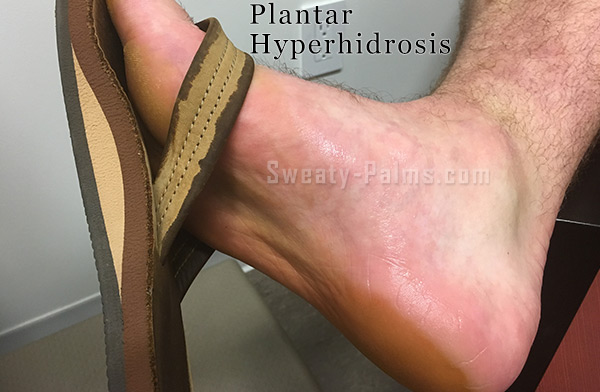Targeted Dermatology Treatments for Hyperhydrosis of Hands and Feet: Reliable Solutions
Targeted Dermatology Treatments for Hyperhydrosis of Hands and Feet: Reliable Solutions
Blog Article
Recognizing the Root Causes of Excessive Sweating and Its Effect on Daily Life
Extreme sweating, additionally referred to as hyperhidrosis, is a problem that influences a significant part of the populace, yet its underlying causes and ramifications on day-to-day functioning remain rather enigmatic. While it is commonly comprehended as a physical feedback to regulate body temperature level, the triggers for too much sweating can vary commonly amongst people, encompassing not only physical aspects but emotional and also emotional aspects. The impact of this condition prolongs past simple pain, frequently influencing social communications and total quality of life. By diving right into the root triggers of hyperhidrosis and discovering its multifaceted effects, a deeper understanding of this prevalent concern can be acquired, shedding light on the complexities that people facing extreme sweating navigate every day.
Physiology of Sweat Glands
The law of sweat production, a vital physiological procedure, is mostly controlled by the task of gland distributed across the body. Gland are categorized right into 2 primary kinds: eccrine and apocrine glands. Eccrine glands are the most numerous and are discovered in mostly all locations of the body. They play an important role in thermoregulation by producing a watery fluid onto the skin's surface, which helps and vaporizes cool the body down. On the other hand, apocrine glands are focused in locations rich in hair roots, such as the armpits and groin, and their secretions are thicker and milklike in appearance.
When the body temperature level climbs, either because of exercise, high temperatures, or psychological anxiety, the anxious system causes the sweat glands to create sweat. This sweat is made up mainly of water and electrolytes like salt and chloride. The process of sweat manufacturing is vital for maintaining the body's interior temperature within a narrow, optimum range, highlighting the essential role sweat glands play in human physiology.
Triggers for Excessive Sweating
In recognizing the origin triggers of extreme sweating, it is vital to determine the triggers that can lead to this physiological response. Physical physical effort, high temperature levels, and spicy foods are likewise known to trigger too much sweating in people susceptible to this condition.
In addition, medicines such as some antidepressants, opioids, and specific supplements can also function as triggers for hyperhidrosis. Comprehending these triggers is vital in managing too much sweating successfully - Treatment for hyperhydrosis of hands. By identifying and addressing the certain triggers that trigger too much sweating in a private, healthcare service providers can develop tailored treatment plans to relieve this problem and enhance the person's lifestyle
Medical Issue Associated
Connected with too much sweating are various medical problems that can exacerbate this physiological feedback. One typical problem is hyperhidrosis, a disorder defined by abnormally raised sweating that goes beyond the body's thermoregulatory needs. This can materialize in focal locations like the palms, soles, underarms, or face, affecting a person's lifestyle because of social shame and pain.
Moreover, endocrine problems such as hyperthyroidism, diabetic issues, and menopausal hot flashes can also lead to excessive sweating. Hyperthyroidism causes an overflow of thyroid hormonal agents, increasing metabolic process and activating sweating.
Additionally, infections like hiv, endocarditis, and consumption have been linked with evening sweats, a typical symptom known to interfere with rest and impact overall health. These clinical problems highlight the varied variety of underlying aspects that can add to too much sweating, demanding complete analysis and management by healthcare professionals.
Emotional and Emotional Variables

Impact on Social Communications
Excessive sweating can have extensive impacts on a person's ability to involve conveniently in social communications. The visible signs of sweat discolorations or wet read this article patches on apparel can result in shame and self-consciousness, causing individuals to take out from social situations. This withdrawal can affect partnerships, limit social tasks, and hinder personal and specialist development.

Moreover, the stress and anxiety and self-confidence concerns originating from excessive sweating can affect communication and interpersonal skills. Individuals might have a hard time to concentrate on conversations, join group activities, or click to read reveal themselves confidently. This can cause sensations of seclusion and solitude, as social links end up being testing to preserve.
Final Thought

While it is typically comprehended as a physiological response to manage body temperature level, the triggers for extreme sweating can vary widely amongst people, including not only physical factors yet psychological and additionally emotional elements. By diving right into the root creates of hyperhidrosis and discovering its diverse effects, a much deeper understanding of this pervasive issue can be obtained, dropping light on the complexities that people grappling with extreme sweating browse on an everyday basis.
Physical exertion, high temperature levels, and spicy foods are likewise known to cause extreme sweating in individuals susceptible to this condition. By recognizing and attending to the specific triggers that motivate excessive sweating in a imp source specific, health care service providers can create customized therapy plans to alleviate this condition and boost the individual's top quality of life.
Excessive sweating can have extensive effects on a person's ability to involve comfortably in social interactions.
Report this page